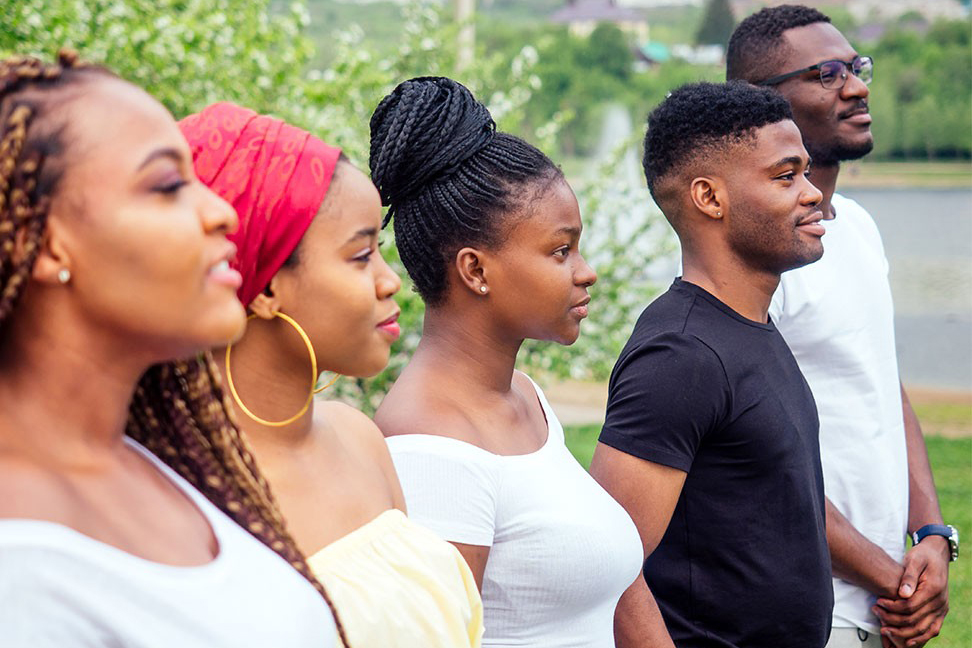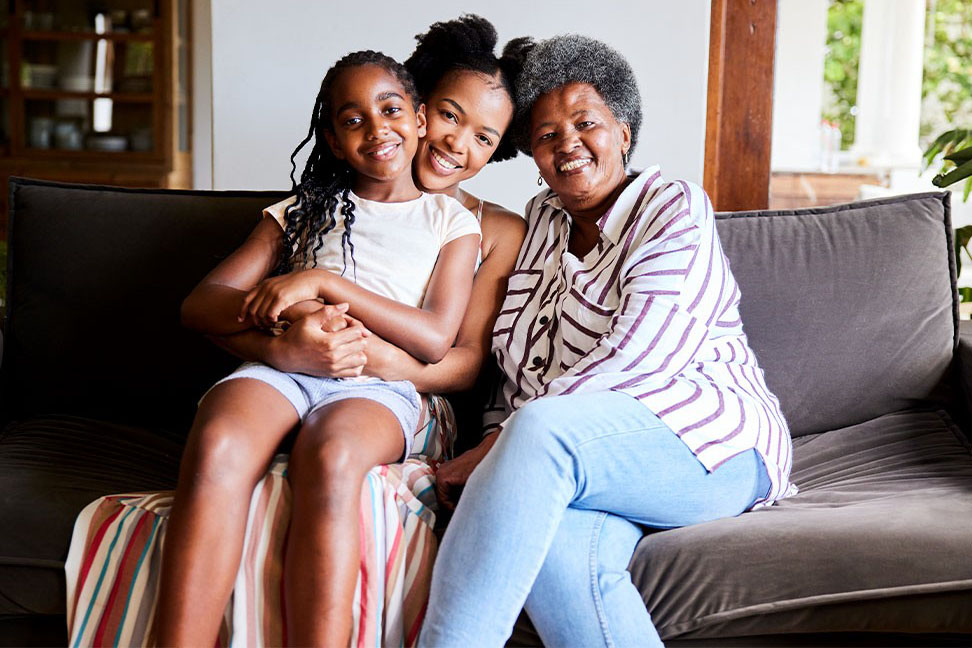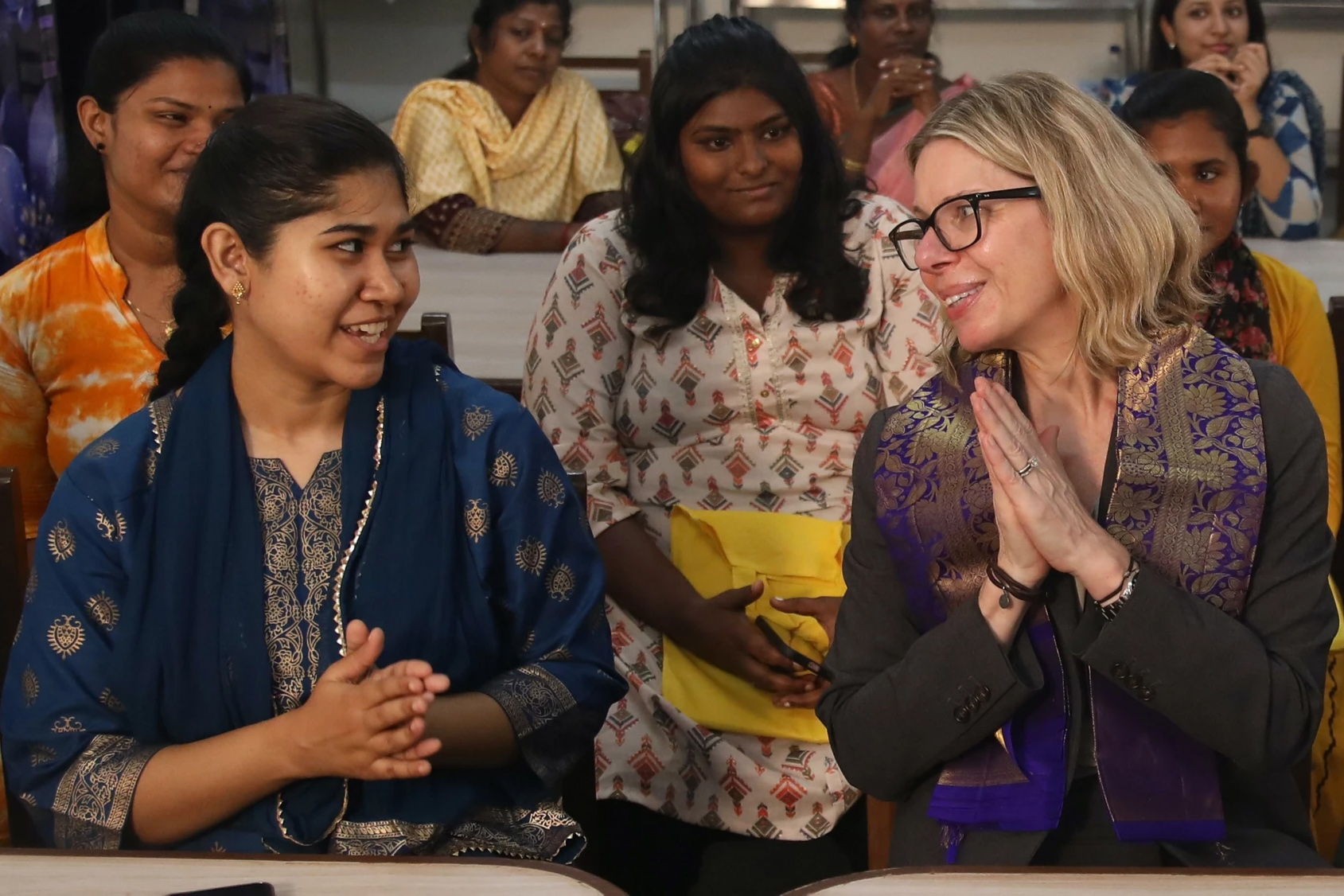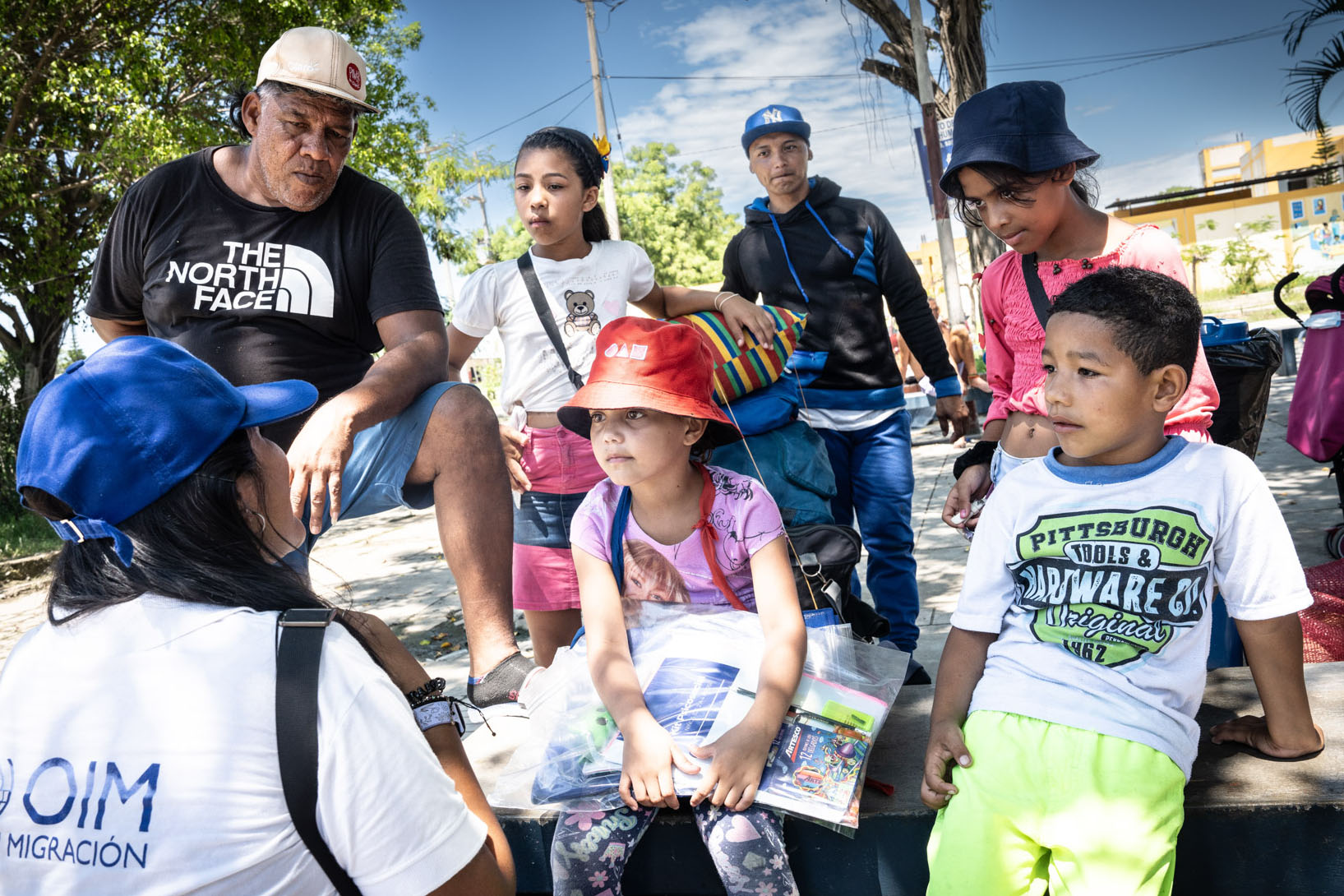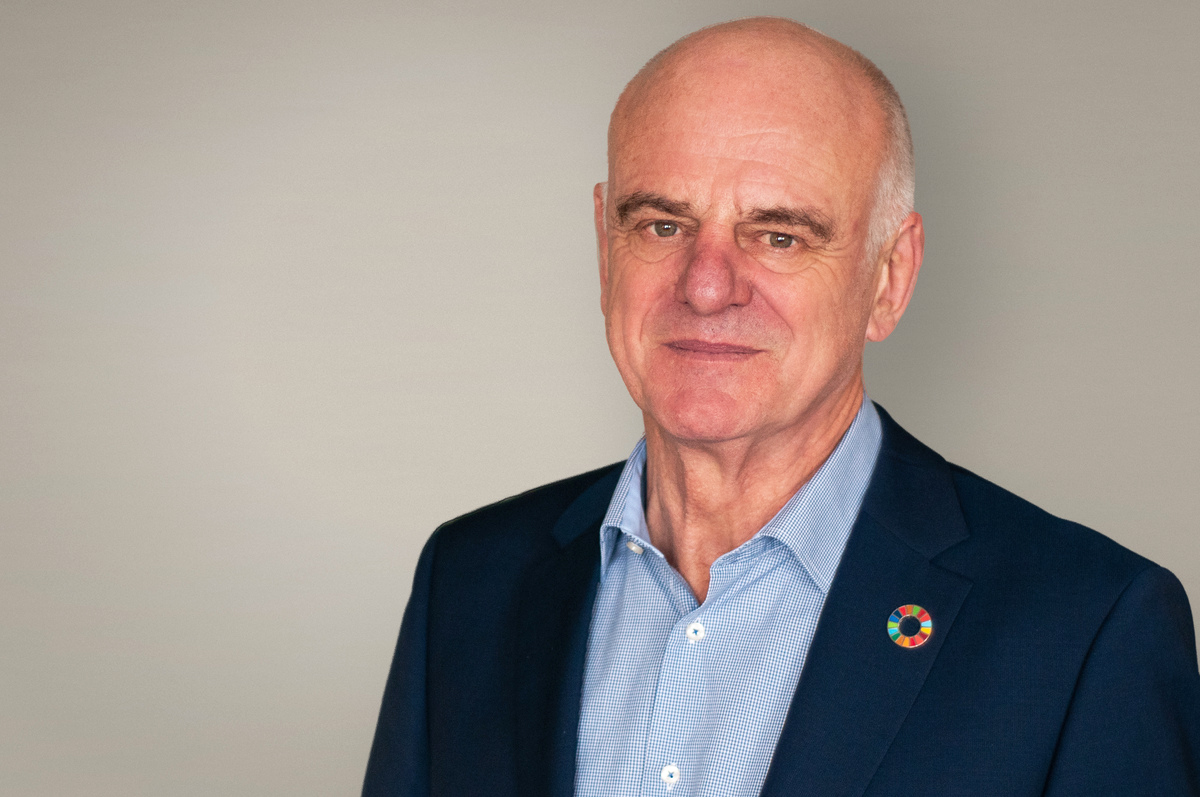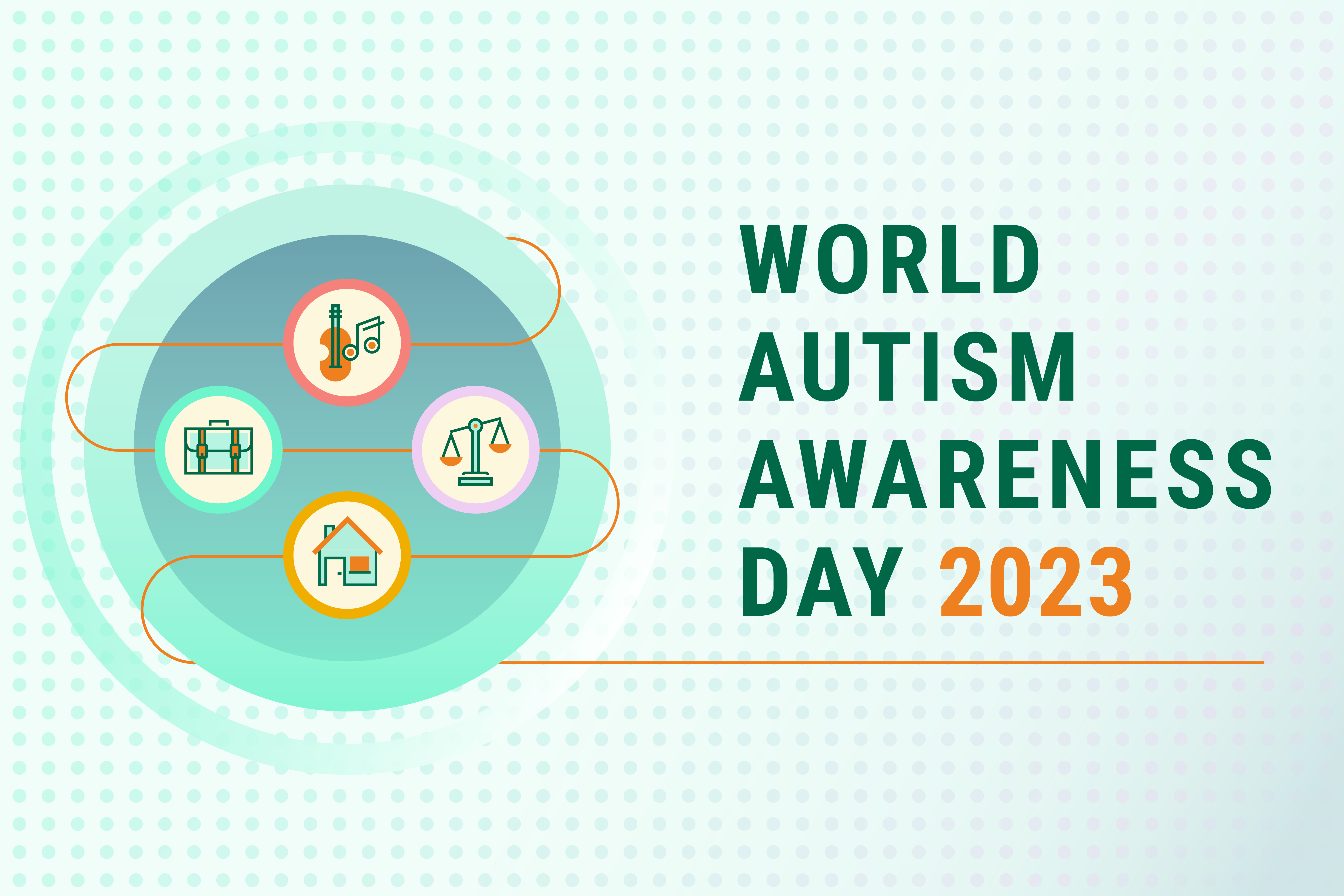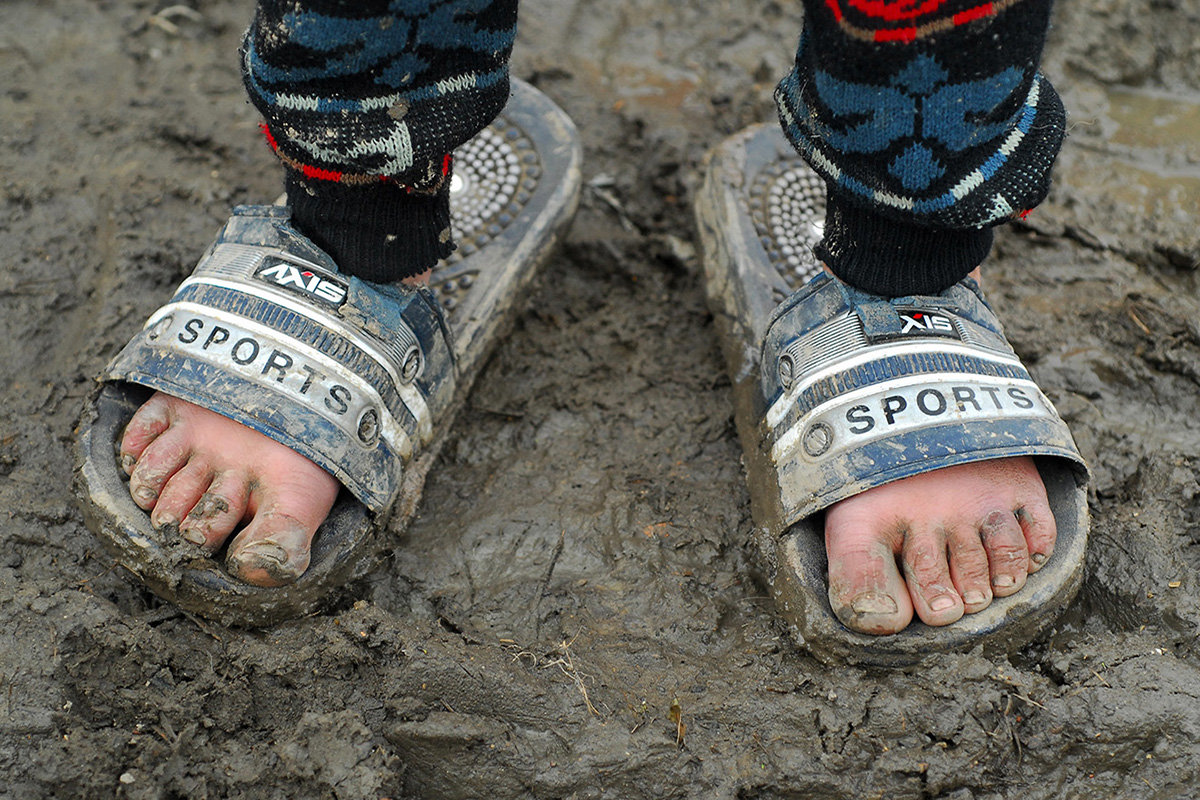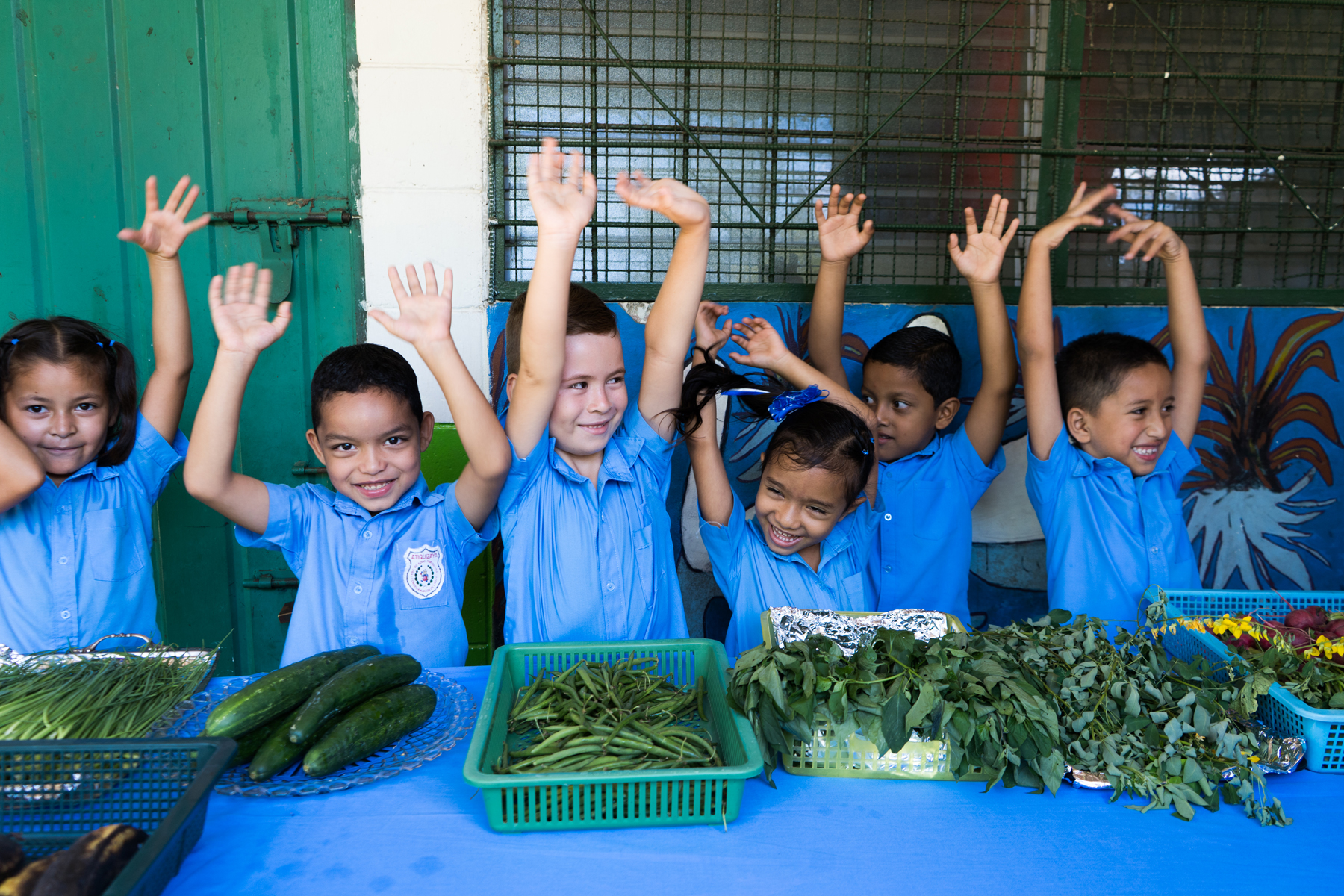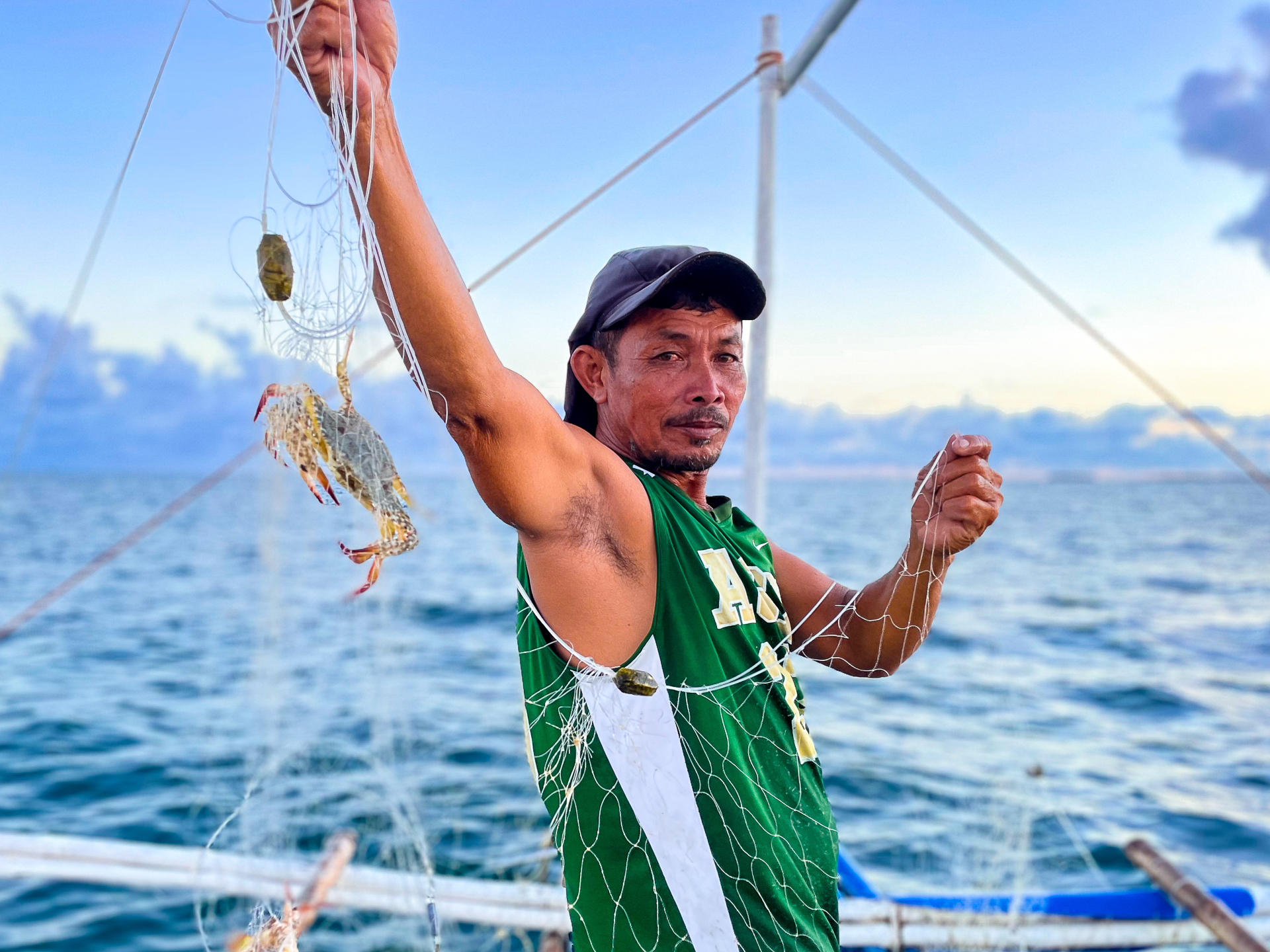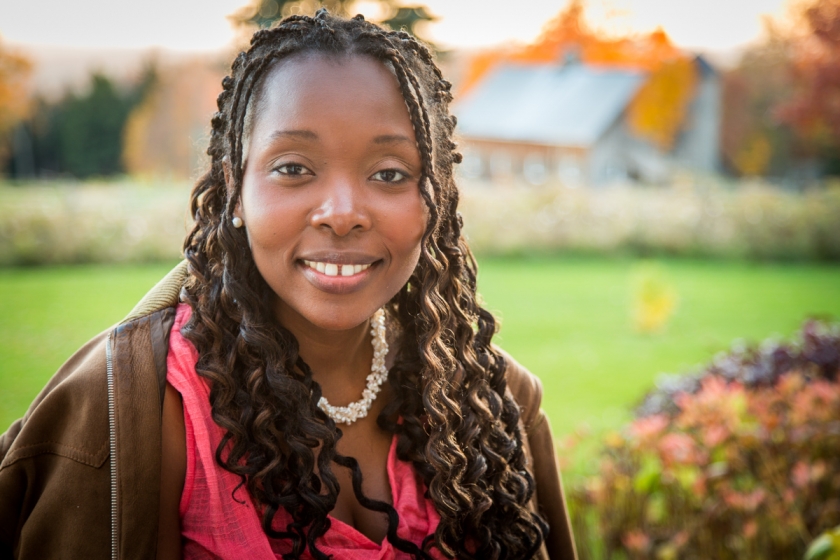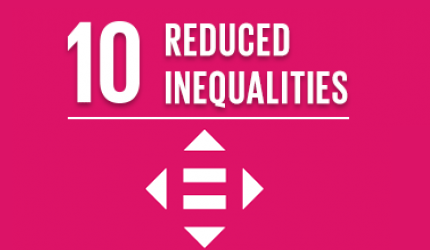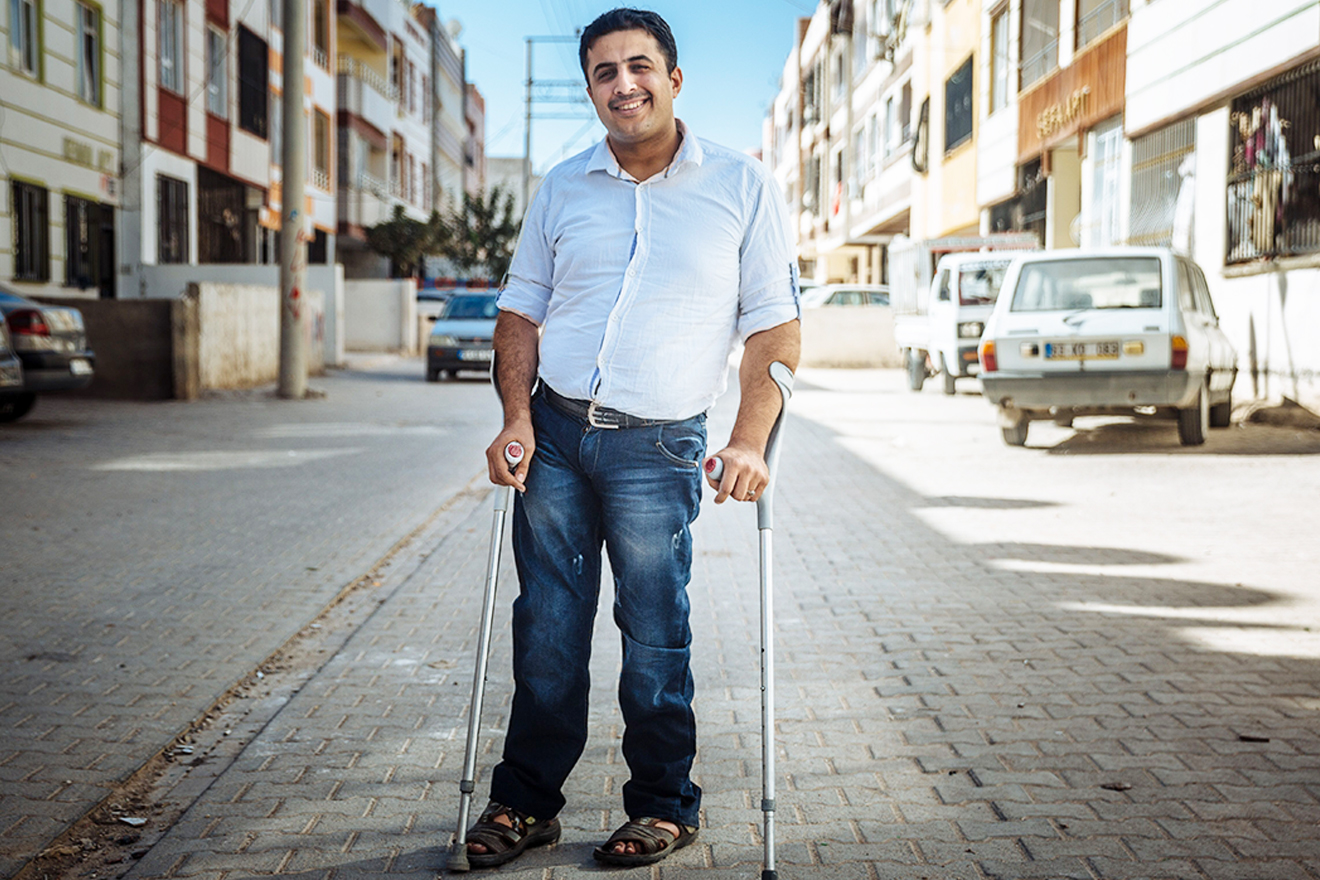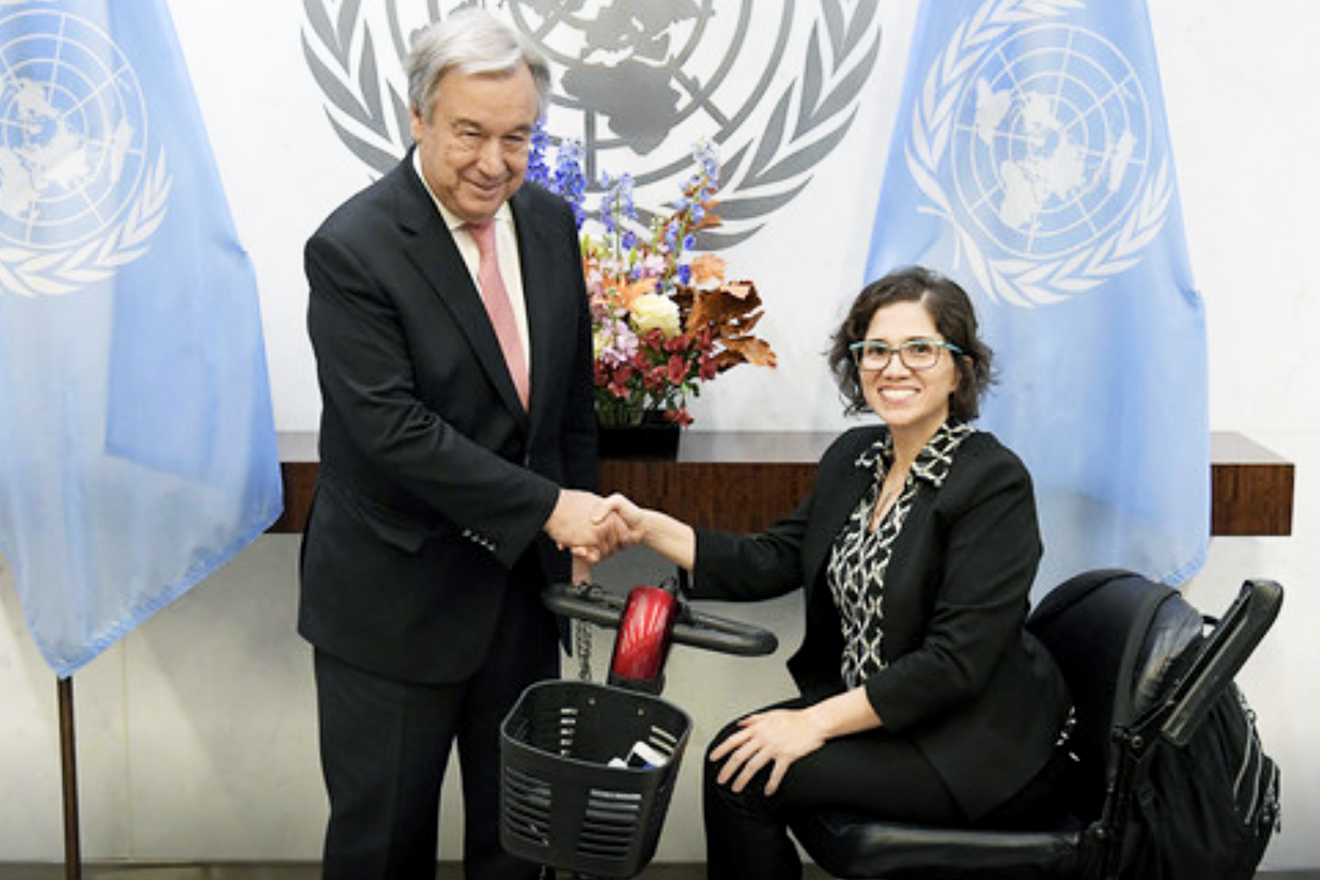As the Second International Decade for People of African Descent begins, voices are calling for justice, recognition, and real change through activism, art, and inclusive policy that centers the lived experiences of people of African descent worldwide.
SDG 10: Reduced Inequalities
On the International Day for Women and Girls of African Descent, powerful voices highlight resilience, call out injustice, and demand meaningful, intersectional action.
Global policies empowering women and men through land rights, childcare, safe transportation, education, and financial access drive economic growth and societal progress.
Cesar’s family highlights the resilience of families who, despite facing exploitation and violence, cross borders daily in search of safety and a better future.
“You see, we're not doing this work to make ourselves feel better. That sort of conventional notion of what a do-gooder is. We're doing this work because we are totally convinced that it's not necessary in today's wealthy world for so many people to be experiencing discomfort, for so many people to be experiencing hardship, for so many people to have their lives and their livelihoods imperiled.”
Dr. David Nabarro has dedicated his life to global health. After a long career that’s taken him from the horrors of war torn Iraq, to the devastating aftermath of the Indian Ocean tsunami, he is still spurred to action by the tremendous inequalities in global access to medical care. “The thing that keeps me awake most at night is the rampant inequities in our world…We see an awful lot of needless suffering.”
A passionate advocate for sustainable development, David Nabarro has seen in his own family how medicine can transform lives. In this episode, he reflects on his lifelong struggle against inequality, the lessons of misfortune, and why communication is always at the heart of healing.
Photo credit: ©4SD Foundation
We are moving away from the narrative of curing or converting autistic people and instead focusing on accepting, supporting and including autistic people, and advocating for their rights. This is a major transformation for all autistic people, their allies, the wider neurodiversity community. It enables autistic people to claim their dignity and self-esteem, and to become integrated as valued members of their families and societies. This year’s World Autism Awareness Day (2 April) focuses on the contributions by autistic people in the home, at work, in the arts and in policymaking.
Despite some positive signs, inequality is growing for more than 70% of the global population. Add-on issues like the climate crisis, an unequal recovery from the pandemic, and a war that comes with food, energy, and financial stress are further widening disparities. Inequality threatens socioeconomic development, harms poverty reduction, and destroys people’s fulfillment and self-worth, especially in developing countries. This, in turn, can breed crime, disease, and environmental degradation. Let’s build a better planet with a solid compromise towards our SDG goal 10: reduced inequalities.
South-South cooperation is a manifestation of solidarity that contributes to national well-being. It covers economic, social, cultural, environmental, and technical domains. Given the post-pandemic scenario, the war in Ukraine, and climate change, the countries of the South and all stakeholders involved must strengthen this cooperation to help each other break the cycle of poverty, instability, and development inequalities. On this International Day of South-South Cooperation, join our event - hosted during the Global South-South Development (GSSD) Expo - which will showcase successful initiatives.
Bantayan, a small coastal island in central Philippines, is home to approximately 3,000 people – around 80 per cent of them fisherfolk and the rest, farmers. In Bisaya, the local language, bantayan means to look closely. As its name implies, bantayan is a signal for everyone to pay attention. It is a reminder that the realities and consequences of the climate crisis go beyond the discomfort of unpredictable weather. Their voices are the warning the world needs to hear. More on how Climate Change is affecting fisherfolk in the Philippines
While the internet seems like it’s everywhere, more than 3 billion people are still offline. On April 27 the UN General Assembly debate on closing the digital divide and greening the planet’s digital future will be held.
Thirty years after the adoption of the only international Convention on the rights of indigenous peoples, a new ILO report finds they are sti
Maria Alexandrova became Bulgaria's first adolescent living with cerebral palsy to take the prestigious Cambridge Assessment in English. Her advocacy led to the local exam centre agreeing to change the timing of the test and let her use a computer.
The Inter-Agency Standing Committee (IASC) Guidelines on the Inclusion of Persons with Disabilities in Humanitarian Action aim to assist humanitarian actors, governments and affected communities to coordinate, plan, implement, monitor and evaluate essential actions for the full inclusion of persons with disabilities in all sectors and phases of humanitarian action. The Guidelines are a key contribution to the Disability Inclusion Strategy launched by the Secretary-General last June.
Because impairment is widely seen as a natural part of the ageing process, many older people with disabilities are shut out from receiving the support they need.

